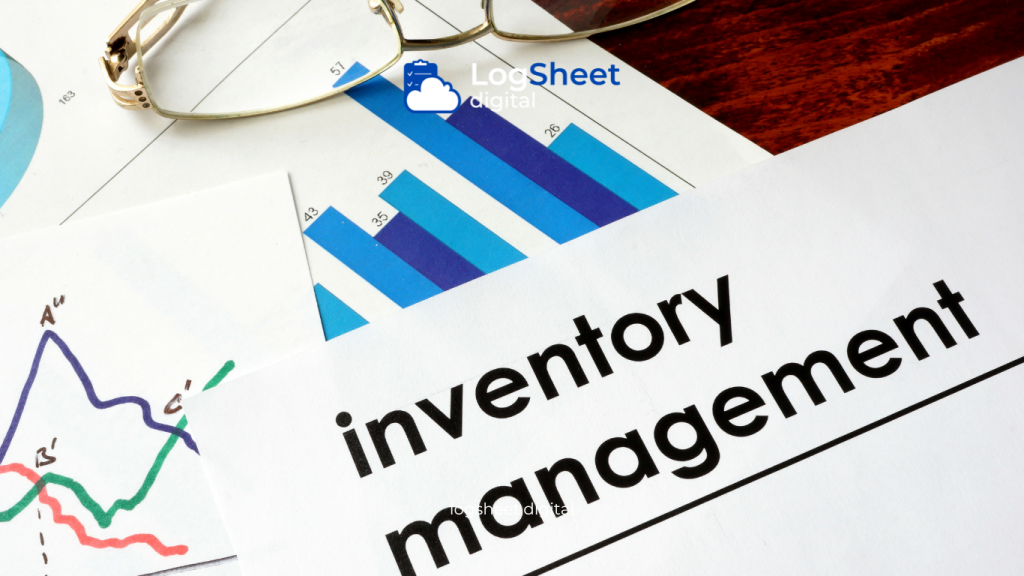In the rapidly advancing digital era, asset management faces the challenge of improving efficiency and accuracy. Digital logsheet have emerged as an innovative solution capable of providing real-time monitoring of various assets. This article will discuss how digital logsheets can become a crucial tool in asset management, the advantages they offer, and the steps for effective implementation.
What is a Digital Logsheet?

Read More: Data Security in Digital Logsheets: Challenges and Security Strategies in Workshops
Definition and Main Functions
A digital logsheet is an application or software that replaces manual records with a digital system. By using this tool, asset-related data can be recorded, stored, and analyzed automatically.
Difference from Conventional Logsheets
Unlike manual logsheets, which are prone to errors and data loss, digital logsheets offer higher security and efficiency. Data can be accessed anytime and anywhere via internet-connected devices.
Benefits of Digital Logsheets in Asset Management

Read More: Safety Equipment Monitoring: Why It Matters?
Real-time Monitoring
Digital logsheets enable real-time monitoring of assets. This provides up-to-date information about the condition, location, and performance of assets.
Operational Efficiency
With digital logsheets, the process of recording and reporting becomes faster and easier. This reduces administrative workload and allows teams to focus on strategic tasks.
Improved Data Accuracy
The automated system in digital logsheets reduces the risk of human errors in data entry. This accuracy is crucial for making data-driven decisions.
Data Security
Data stored in digital logsheets is usually equipped with encryption features and backup systems, minimizing the risk of data loss or theft.
Key Features of Digital Logsheets

Read More: Digital Logsheets and Asset Management for Quality Improvement
Interactive Dashboard
This feature allows users to monitor assets through an informative and easy-to-understand visual display.
Notifications and Alarms
Digital logsheets are equipped with notifications that alert users in case of any issues or anomalies with the assets.
Integration with IoT Technology
With Internet of Things (IoT) technology support, digital logsheets can connect with sensors and other devices for automatic data collection.
Automated Reporting
The system can generate periodic reports automatically, which can be used for further analysis.
Implementing Digital Logsheets in Asset Management

Implementation Steps
- Identify Needs: Determine the types of assets to be monitored and the specific needs of the organization.
- Choose a Platform: Select a digital logsheet platform that fits your needs.
- Train the Team: Provide training to the team to ensure they can use the system effectively.
- System Integration: Ensure that the digital logsheet can integrate with other existing systems.
- Monitor and Evaluate: Conduct regular monitoring and evaluation to ensure the system operates smoothly.
Challenges in Implementation
- Initial Costs: The initial investment for hardware and training can be quite high.
- Resistance to Change: Some team members may find it difficult to adapt to new technology.
- Infrastructure Limitations: Unstable internet access can pose challenges.
Case Studies of Successful Use of Digital Logsheets

Read More: Digital Logsheets in Improving Workshop Performance and Reducing Costs
Manufacturing Company
A manufacturing company that adopted digital logsheets successfully reduced machine downtime by 30% thanks to real-time monitoring and early notifications.
Logistics Industry
In the logistics sector, digital logsheets have helped improve fleet management efficiency by tracking the location and condition of vehicles in real-time. As a result, this real-time monitoring allows for timely maintenance and better decision-making, ultimately optimizing the overall performance of the fleet.
Energy Sector
In the energy sector, digital logsheets are used to monitor equipment in remote locations, thereby ensuring efficient operations. Additionally, they help in identifying potential issues early, which further enhances operational reliability and minimizes downtime.
The Future of Digital Logsheets in Asset Management

Read More: Improving Efficiency with Digital Logsheets: A Guide to Maintenance Implementation
Future Technology Trends
- Integration of AI and Machine Learning: Predictive analytics to detect potential issues before they occur.
- Enhanced Data Security: Using blockchain to protect data integrity.
- Integrated Ecosystem: Connecting digital logsheets with other management platforms to enhance efficiency.
Development Potential
Digital logsheets have the potential to evolve with new advanced features. Specifically, this includes deeper analytical capabilities, as well as integration with augmented reality (AR) technology. Furthermore, we can expect increasingly intuitive user interfaces, making the system even more user-friendly.
Conclusion

Read More: Implementation of Digital Logsheets for Tracking and Calibration Monitoring
Digital logsheets are a revolutionary tool in asset management that offers real-time monitoring, operational efficiency, and improved data accuracy. With proper implementation, this technology can provide significant benefits for various industries. While there are challenges in adoption, the long-term advantages offered by digital logsheets make them a valuable investment for the future of asset management.






comments (0)